THE OTHERS. Dark and unsettling ghost story with a twist
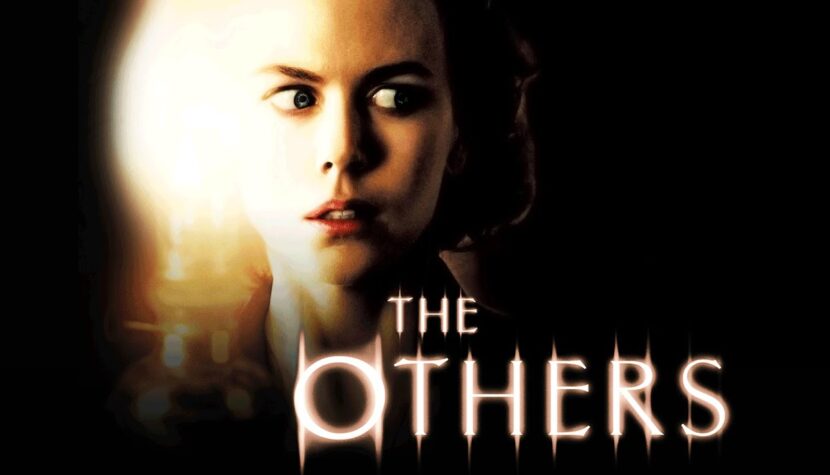
The turn of the century brought us an abundance of films in which one of the main motifs was questioning the reality surrounding the protagonist. This was most evident in science fiction cinema, to name just a few: The Matrix by the Wachowskis, Dark City by Alex Proyas, and The Thirteenth Floor by Josef Rusnak. However, shortly afterward, this reflection became a component of non-fantastic works. In both Darren Aronofsky’s thriller Pi and Christopher Nolan’s suspenseful Memento, the main character faces the truth about the world that they cannot accept; the only way to oppose reality is to escape their own identity and recreate themselves. This interpretation also applies to David Lynch’s Mulholland Drive, although, in his case, it was a natural development of the themes explored in his previous works. M. Night Shyamalan’s The Sixth Sense perhaps became the most well-known realization of this idea in horror, and even David Cronenberg himself, in eXistenZ, decided to blend the horror of corporeality with futuristic settings, casting doubt on the possibility of distinguishing truth from fiction.
That particular period is best associated with the name Alejandro Amenábar, a Chilean-born Spanish director who won an Oscar with only his fourth film (the award for Best Foreign Language Film for The Sea Inside). Prior to that, he was known as a skillful creator of genre cinema filled with mystery and suspense. In Thesis, a student writes a thesis on violence in films and accidentally stumbles upon a tape featuring a real murder. Soon, her investigation catches the attention of a psychopath who records snuff films. Even more intriguing is Open Your Eyes, the story of a young playboy who loses his face in an accident only to regain it and the love of his life, paying a very high price in the process. Tom Cruise was so impressed with the thriller that he later remade it as Vanilla Sky, and he enabled Amenábar to make his English-language debut by producing his next film, The Others.
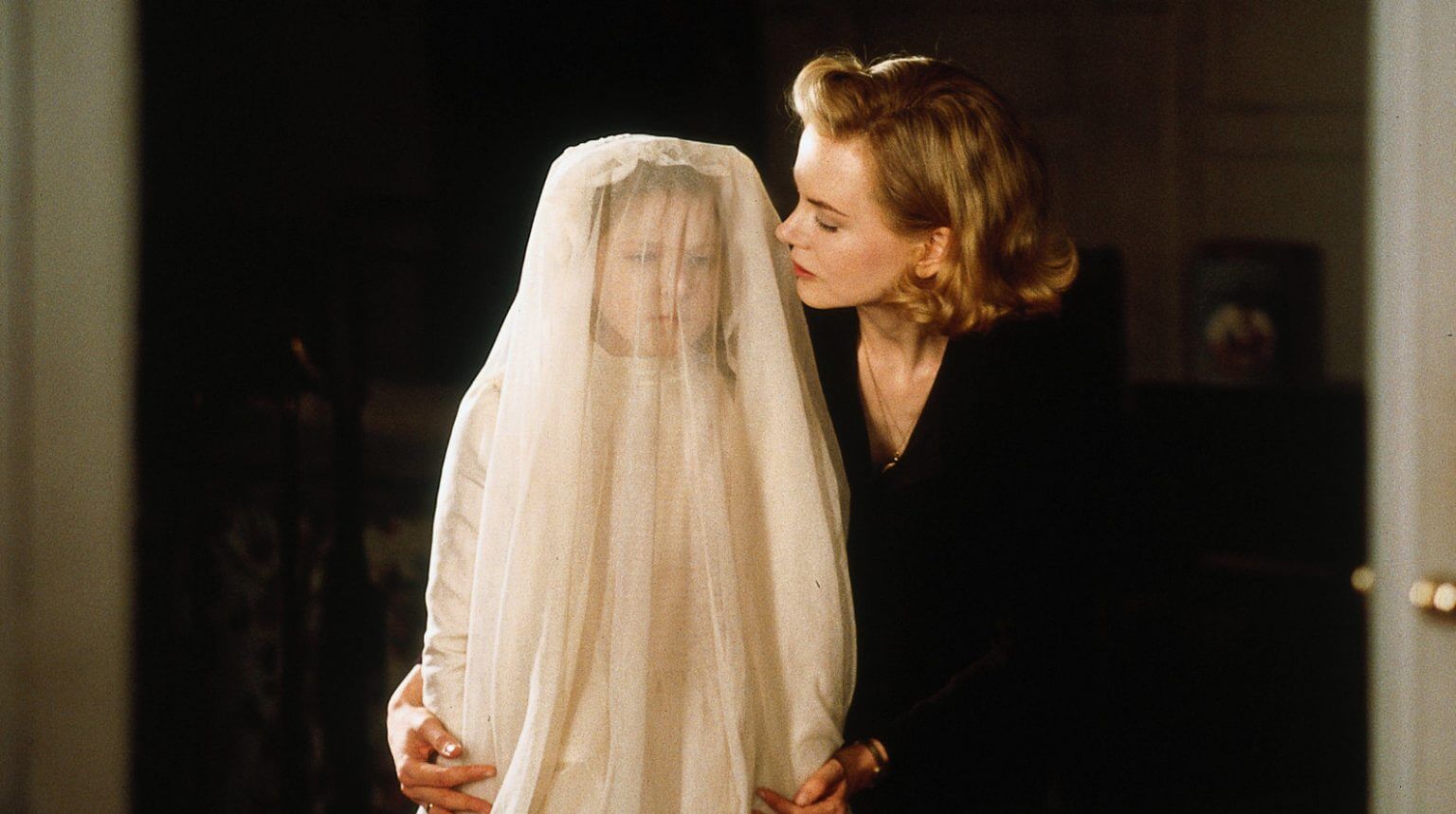
The year is 1945, and in England, the war has already ended. Living in a large house, Grace and her two children await the return of her husband and father. The young siblings suffer from a rare condition that prevents them from being exposed to strong light, so they never leave their home, which is often shrouded in darkness. The newly hired servants must ensure that the windows in the children’s rooms are tightly covered, and the doors to the adjacent rooms are closed. However, increasingly, there are situations endangering the health of Anne and Nicholas. Or perhaps, as the little girl claims, the ghost of a young boy is haunting them? The mother doesn’t believe this, but the recurring unexplained incidents confirm the intervention of spirits.
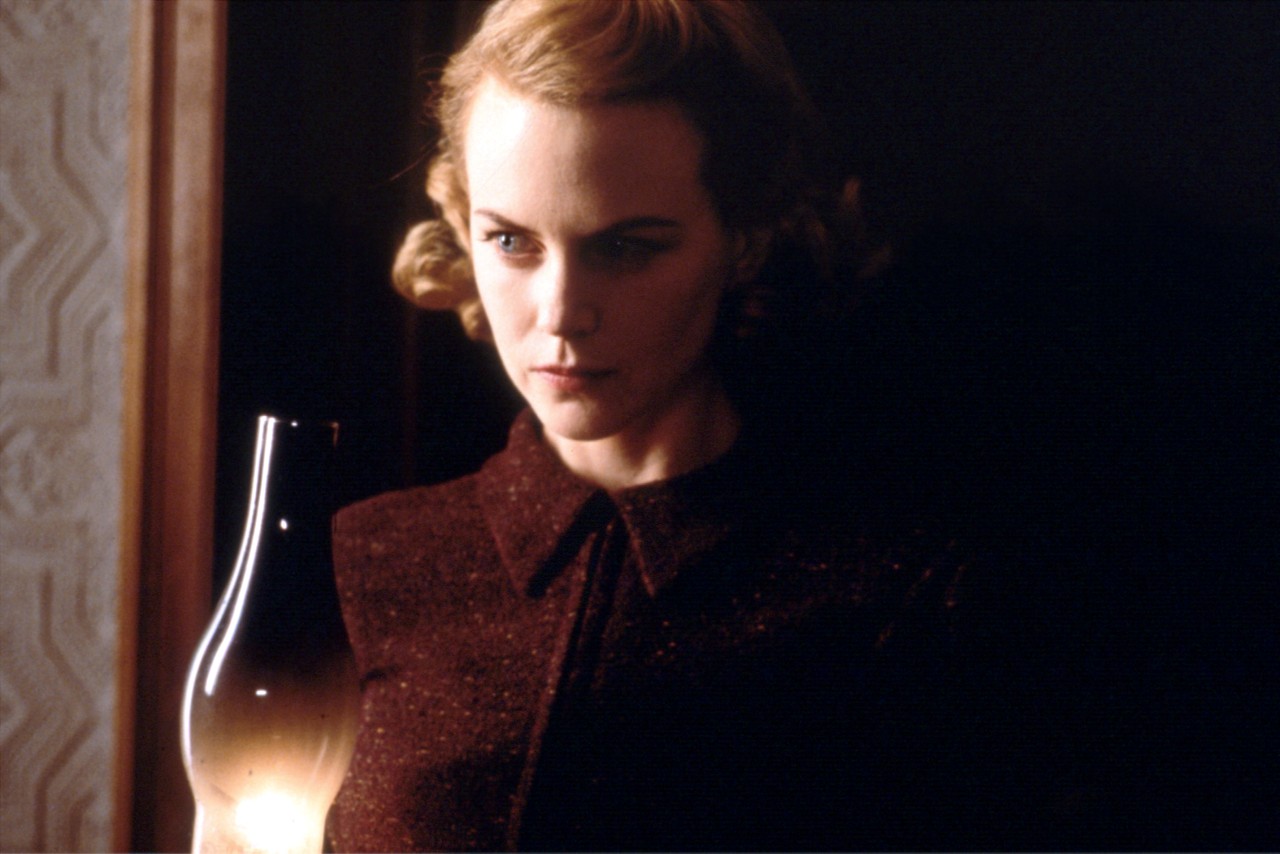
Allow me to digress a little with my first encounter with The Others. As I sat in the seat of the now-closed cinema, I was terrified throughout the entire screening, from beginning to end. At that time, I may not have fully grasped how Amenábar’s horror was affecting me, paying more attention to the technical aspects, the superb performances by Nicole Kidman and the other actors, and the director’s ability to create on-screen horror. The film genuinely has scary moments, and the tension is masterfully built, but what unsettled me the most was the strangely melancholic atmosphere of absence… of something. Something difficult to specify, something familiar, the presence of which I was unaware. The shock was so strong that as I left the cinema into the dark, cold night, I took a longer route home than usual. Something had shaken me back then. I’m not sure if any other cinematic experience has had the same effect on me.
Twenty years later, I still watch The Others, amazed by its power, which, to a lesser extent, arises from the typical horror elements.
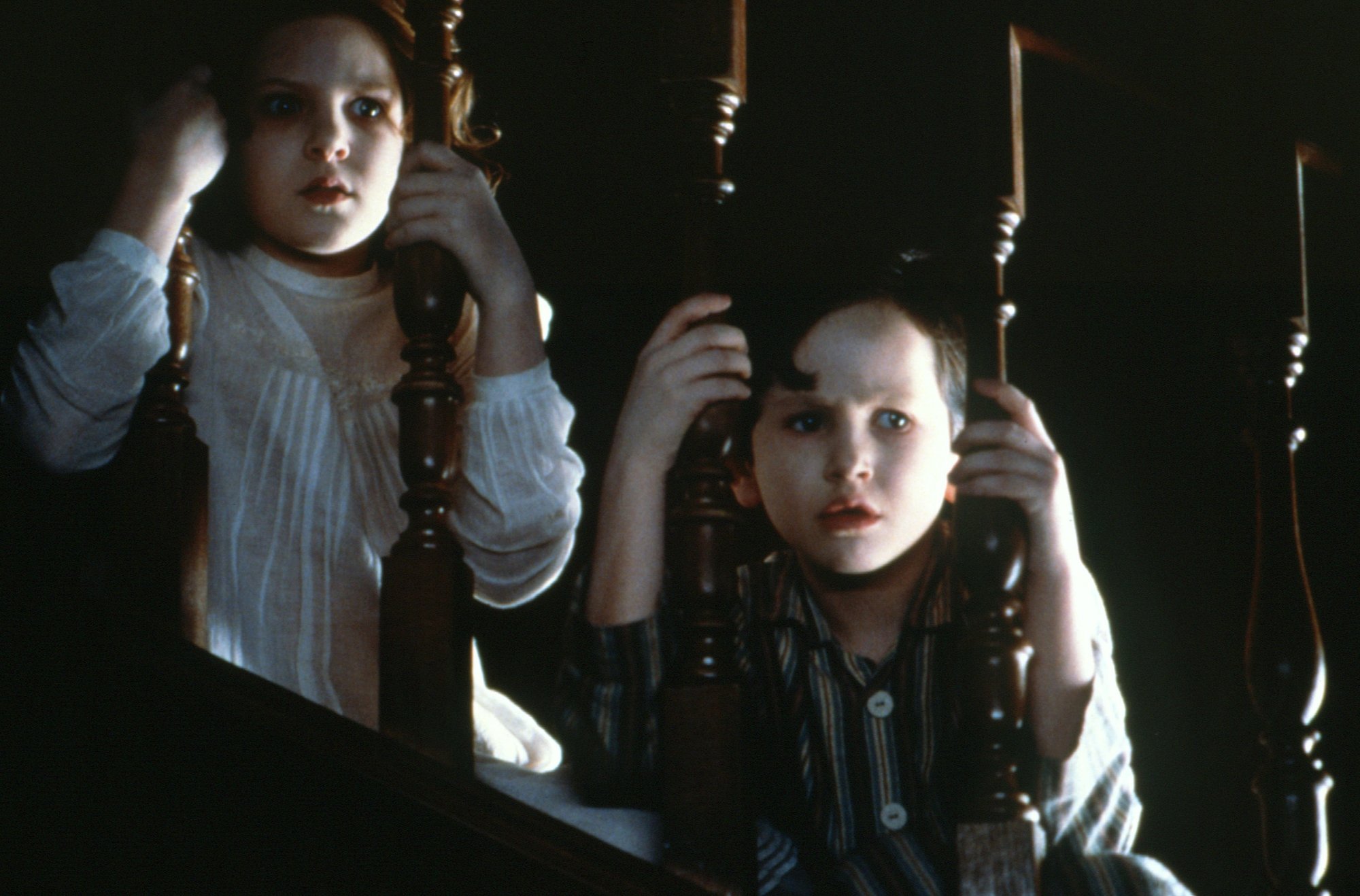
Genre enthusiasts will find strong echoes here of The Innocents by Jack Clayton, where a governess fought for the lives and souls of two small charges. Amenábar’s main character is also portrayed as someone on the side of faith, guided by love but also exhausted and oppressed by the situation in which she is a prisoner in her own home and her children. She cannot act as her servants do—leave without a word or explanation, under the cover of night. She must persevere as a mother and mistress of the house, even if the situation seems hopeless. Hence, the appearance of apparitions, or rather the strange and unsettling signs of their presence, prompt her to react decisively. However, Grace, although she takes action to protect her children from intruders, does not want to believe in ghosts. How can she believe in something that contradicts the teachings of the Church? If the Bible states that the living and the dead are only to meet at the end of eternity, how can she explain this intermingling of two worlds?
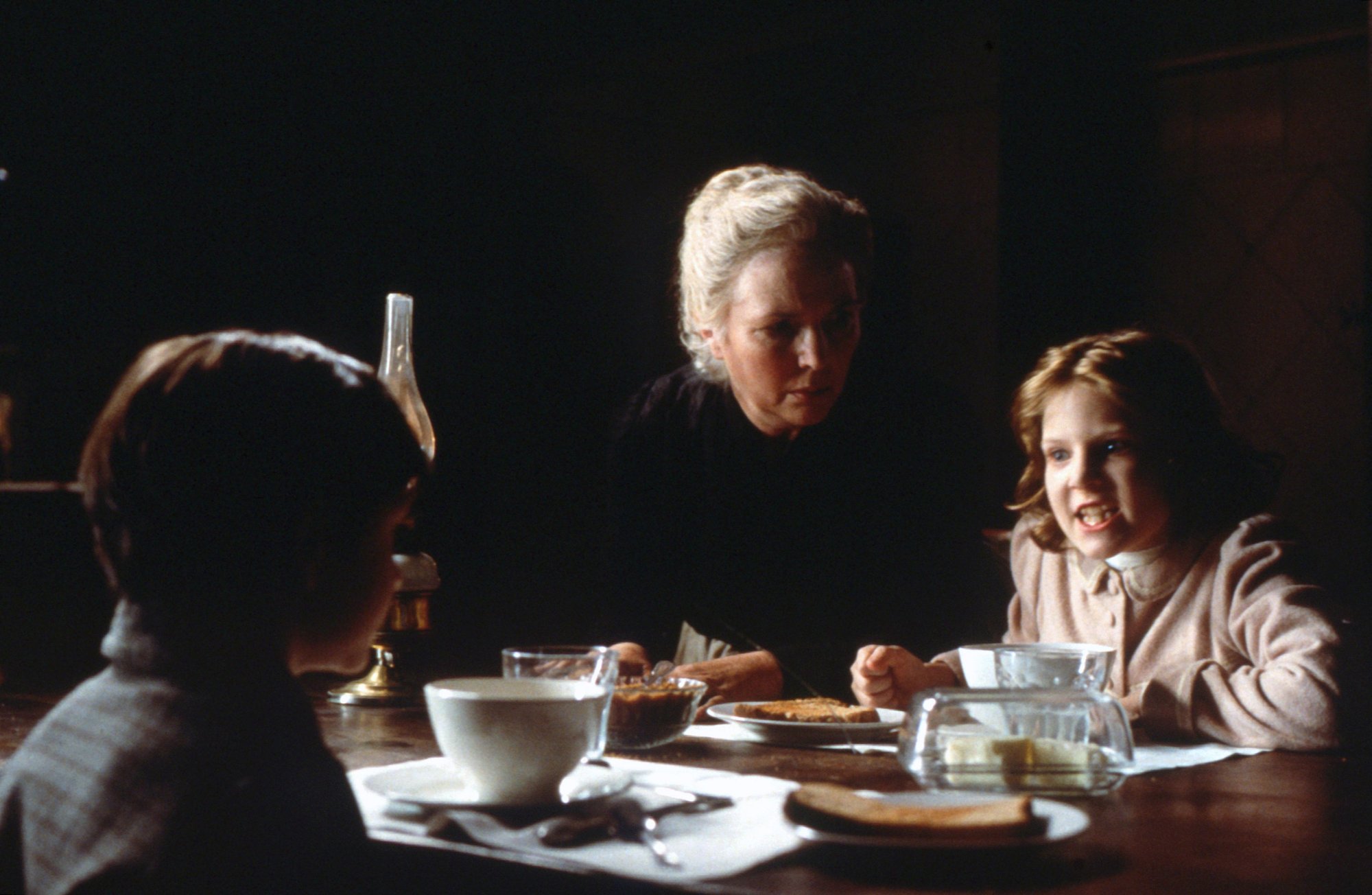
So, The Others is an existential horror, a horror of faith, one might say; the greater danger than the ghosts is the questioning of the worldview upon which Grace’s entire life is built. By admitting to herself and others that the house is haunted by spirits, she would send a clear signal that religion is just as incredible as the fantastic tales read by her daughter.
Amenábar has confessed to being an atheist in many interviews, while also noting that he was raised in the Catholic faith. It’s evident that his religious upbringing continues to haunt him, which can be seen by tracing his filmography after The Others. In his Oscar-winning film The Sea Inside, we adopt the perspective of a paralyzed man seeking permission for euthanasia. Agora is a historical depiction of the downfall of Alexandria, a center of culture and science destroyed by Christians. In Regression, a young girl becomes a victim of a satanic cult, but the detective leading the investigation discovers that mass hysteria has triumphed over the truth. In each of these films, religion poses an obstacle for the characters, somehow threatening their fulfillment. Agora depicted Christianity to such an extent as dull and dangerous thinking that some critics labeled the film as blasphemous, despite the director’s assurances that he wanted to present a universal warning against any form of religious fanaticism.
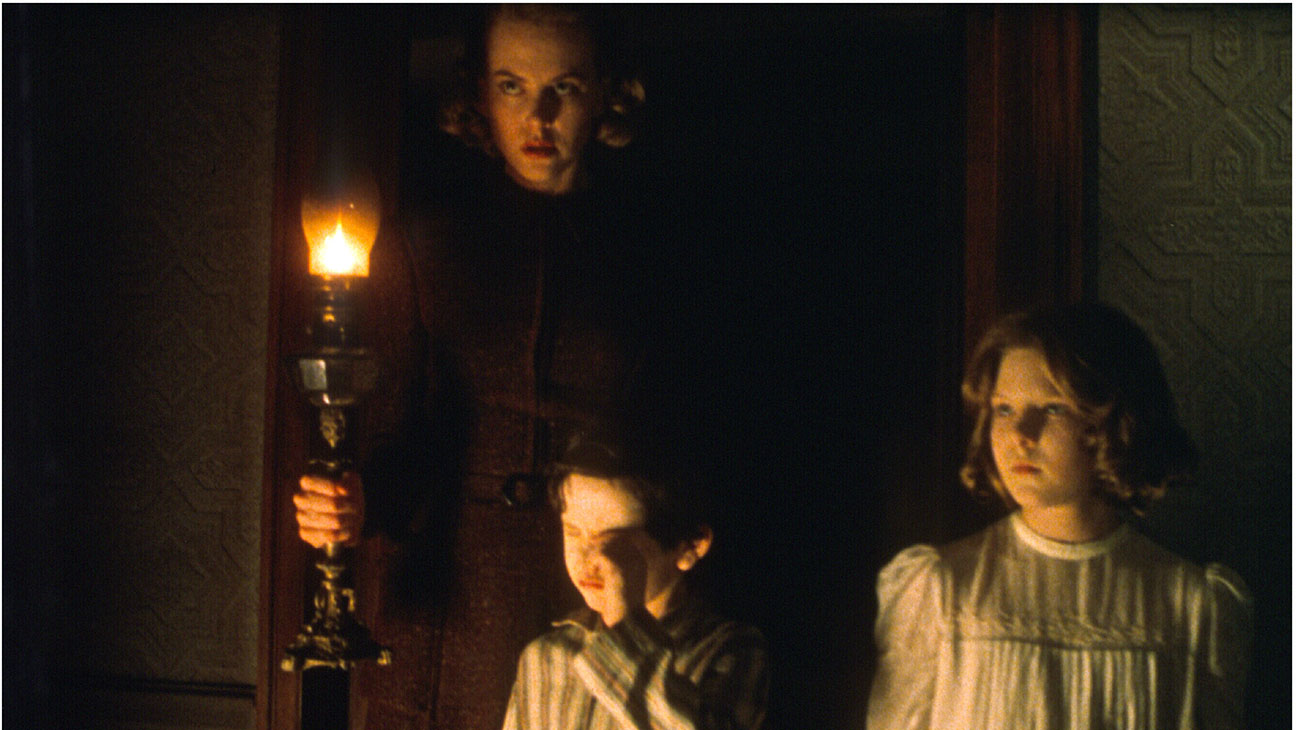
It’s hard to call his works didactic, even though it does indeed challenge faith as something limiting rather than enriching. More than presenting his own beliefs, Amenábar seems to be interested in authentically depicting the drama of being a being ultimately immortal. He rejects the notions of heaven and hell, replacing them with dreams (Open Your Eyes), videotape recordings (The Thesis), and pages of history (Agora), or, as in the case of The Others, a continuation of earthly life. When Grace discovers the secret of the titular “others” in the film’s climax, we don’t know if she’s more horrified by the truth that emerges about the events that took place in the house, the insufficiency of religion as a cognitive and formative tool, or the need to come to terms with the realities of the new world. Until then, she had denied it, rejecting the possibility of any compromise; in the end, she confesses to her children that she knows just as much as they do. However, Amenábar sees a glimmer of hope in this situation – accepting change brings the chance to correct mistakes. Not even death can stop that.
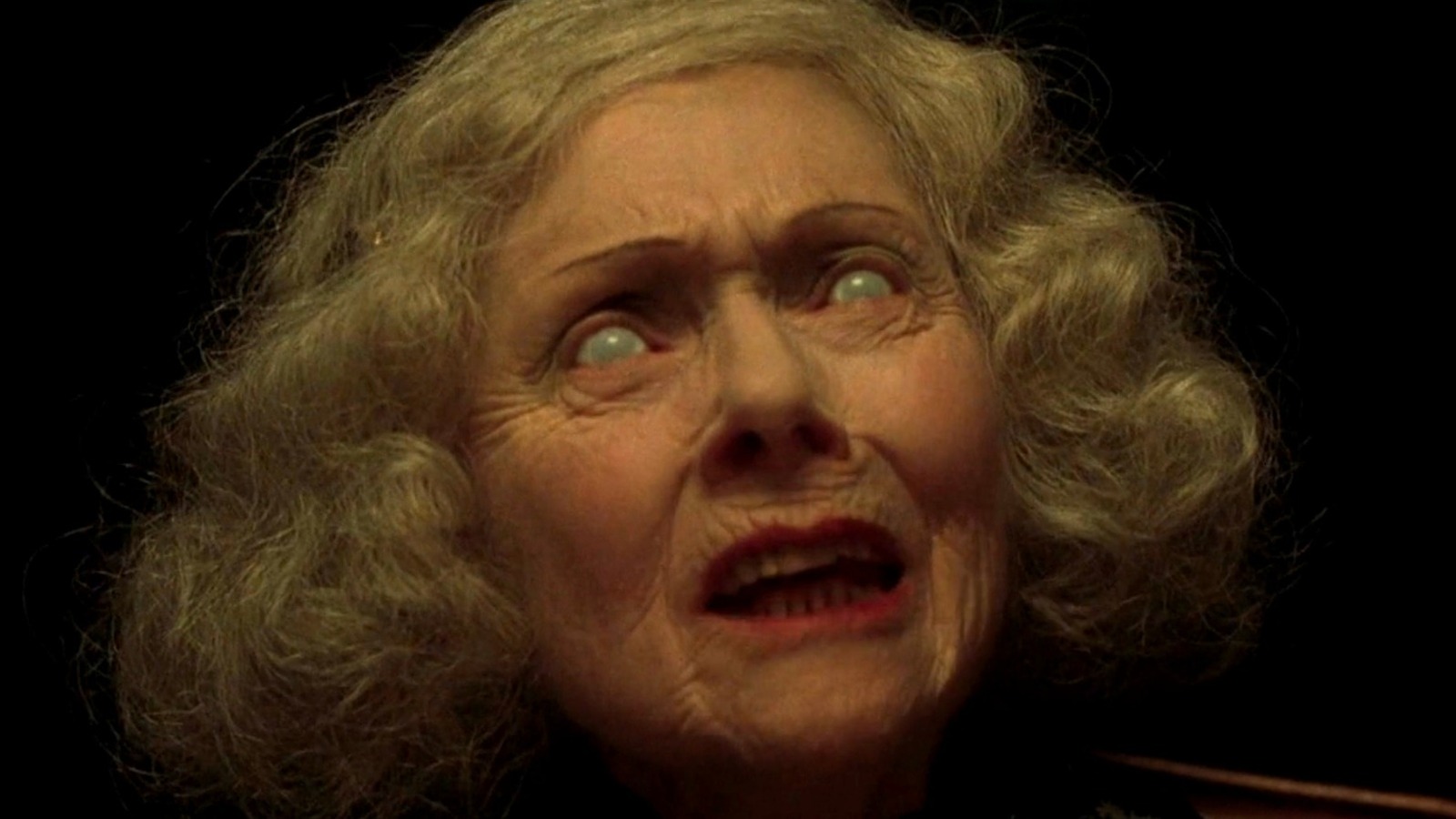
Did The Others move and frighten me because it challenged my own faith? Not at all. However, it used the right words, images, and storytelling to show how overwhelming, demanding, and ultimately offering only illusory comfort religion can be. This classic ghost story resonates even more with the viewer, the more they identify with the main character and her unwavering convictions. Her drama doesn’t lie in believing but in stopping there. By avoiding questions of finality, we are reminded of children living in the dark or lost in thick fog.

